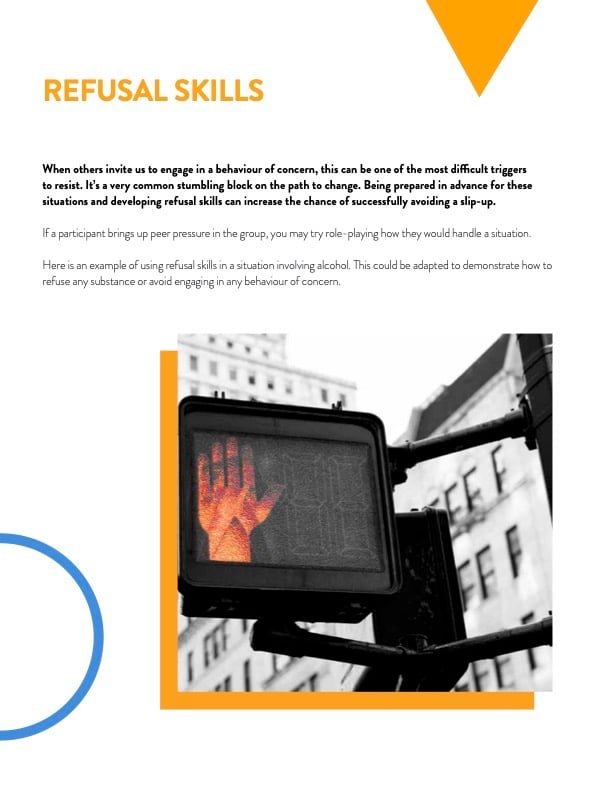Tool Overview
When others invite us to engage in a behaviour of concern, this can be one of the most difficult triggers to resist. It's a very common stumbling block on the path to change. Being prepared in advance for these situations and developing refusal skills can increase the chance of successfully avoiding a slip-up.
You can use the supportive environment of a SMART meeting to practice your refusal skills by role-playing how you would handle certain situations.
When to Use This Tool
If you are concerned about a situation where you might have difficulty saying no, role-playing different ways you could handle a situation can be very useful.
How To Use This Tool
Role play scenarios within your SMART meeting or with a trusted friend between meetings so you can practice your refusal skills when invited to engage in a behaviour of concern.
Helpful Links
Helpful Links
Related Tools
View all- Tool
Urge Log
An awareness and understanding of urges is crucial to recovery. One way to understand urges is by recording them. After a few entries, participants may notice patterns and similarities about their urges. The log then becomes a road map that will help them to anticipate situations and emotions that may trigger urges and plan ways to avoid recognized triggers or distract themselves from the urge until it passes.
- Tool
Coping With Urges
Recording and analyzing urges through a log empowers individuals in recovery to gain awareness, identify patterns, anticipate triggers, and develop strategies to manage and overcome them.
- Worksheet
Practicing Self Acceptance
People struggling with behaviours of concern often feel a great deal of shame, self-blame and guilt. They may judge themselves harshly and beat themselves up about their behaviour.



